
The International Food Policy Research Institute (IFPRI) is an international research center focused on agriculture and food systems that provides research-based policy solutions to reduce poverty and end hunger and malnutrition throughout low- and middle-income countries in environmentally sustainable ways. For nearly 50 years, IFPRI has worked with policymakers, academics, nongovernmental organizations, the private sector, development practitioners, and others to carry out research, capacity strengthening, and policy communications on food systems, economic development, and poverty reduction.

Applied economics is the application of economic theory and econometrics in specific settings. As one of the two sets of fields of economics, it is typically characterized by the application of the core, i.e. economic theory and econometrics to address practical issues in a range of fields including demographic economics, labour economics, business economics, industrial organization, agricultural economics, development economics, education economics, engineering economics, financial economics, health economics, monetary economics, public economics, and economic history. From the perspective of economic development, the purpose of applied economics is to enhance the quality of business practices and national policy making.
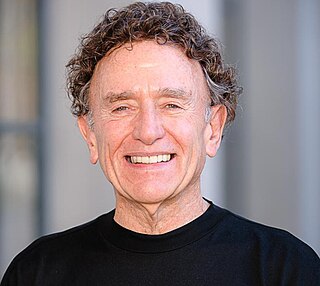
Gordon Rausser is an American economist. He is currently the Robert Gordon Sproul Distinguished Professor Emeritus, Dean Emeritus, at Rausser College of Natural Resources and more recently, a professor of the graduate school at the University of California, Berkeley. On three separate occasions, he served as chairman of the Department of Agriculture and Resource Economics, served two terms as Dean of the Rausser College of Natural Resources, and has served on the board of trustees of public universities and one private university. Rausser has been appointed to more than 20 board of directors of both private and publicly traded companies, including chairman of several of such boards.
Marc Leon Nerlove was an American agricultural economist and econometrician and a distinguished university professor emeritus in agricultural and resource economics at the University of Maryland. He was awarded the John Bates Clark Medal from the American Economic Association (AEA) in 1969 and held appointments at eight different universities from 1958–2016. The Clark Medal is awarded to an economist under the age of 40 who “is judged to have made the most significant contribution to economic thought and knowledge”, and when the AEA appointed him as a distinguished fellow in 2012, they cited his development of widely used econometric methods across a range of subjects, including supply and demand, time series analysis, production functions, panel analysis, and family demography.
The Association of Environmental and Resource Economists (AERE) was founded in 1979 in the United States as a means of exchanging ideas, stimulating research, and promoting graduate training in environmental and natural resource economics. The majority of its members are affiliated with universities, government agencies, non-profit research organizations, and consulting firms. Many of AERE's members hold graduate degrees in economics, agricultural economics, or related fields, but there are numerous student members as well. The organization also serves many non-specialist members with environmental policy interests. The United States is the country with the largest single share of AERE members, but the organization welcomes members from all countries. Annual individual memberships currently number approximately 800. AERE is generally acknowledged as the primary professional organization for Environmental and Natural Resources economists in the USA. The European Association of Environmental and Resource Economists is its European equivalent.
Siegfried von Ciriacy-Wantrup was a German academic. Born in Langenberg, Germany in 1906. After doing his master's work in Illinois, he returned to Bonn to get his Ph.D. in 1931. In 1936, he left Nazi Germany for the United States, arriving at UC Berkeley and the Department of Agricultural and Resource Economics in 1938.

Daniel W. Bromley is an economist, the former Anderson-Bascom Professor of applied economics at the University of Wisconsin–Madison, and since 2009, Emeritus Professor. His research in institutional economics explains the foundations of property rights, natural resources and the environment; and economic development. He has been editor of the journal Land Economics since 1974.

Rural economics is the study of rural economies. Rural economies include both agricultural and non-agricultural industries, so rural economics has broader concerns than agricultural economics which focus more on food systems. Rural development and finance attempt to solve larger challenges within rural economics. These economic issues are often connected to the migration from rural areas due to lack of economic activities and rural poverty. Some interventions have been very successful in some parts of the world, with rural electrification and rural tourism providing anchors for transforming economies in some rural areas. These challenges often create rural-urban income disparities.

David Zilberman is an Israeli-American agricultural economist, professor and Robinson Chair in the Department of Agricultural and Resource Economics at the University of California, Berkeley. Zilberman has been a professor in the Agricultural and Resource Economics Department at UC Berkeley since 1979. His research has covered a range of fields including the economics of production technology and risk in agriculture, agricultural and environmental policy, marketing and more recently the economics of climate change, biofuel and biotechnology. He won the 2019 Wolf Prize in Agriculture, he is a member of the US National Academy Science since 2019, was the President of the Agricultural and Applied Economics Association (AAEA), and is a Fellow of the AAEA, Association of Environmental and Resource Economics, and the European Association of Environmental and Resource Economics. David is an avid blogger on the Berkeley Blog and a life-long Golden State Warriors fan.
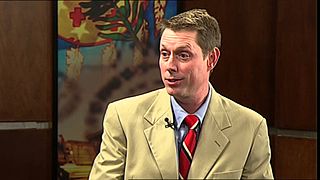
Jayson Lusk is Vice President and Dean of the Division of Agricultural Sciences and Natural Resources at Oklahoma State University. Prior to that position, he served as Distinguished Professor and Department Head in the Department of Agricultural Economics at Purdue University. He authors books and articles related to contemporary food policy issues.
George Stanford Tolley was an agricultural economist at the University of Chicago. Along with the faculty at the University of Chicago, he has worked on the faculty of North Carolina State University. In 1965–1966, he was Director of the Economic Development Division of the Economic Research Service at the US Department of Agriculture, and in 1974–1975 he was Deputy Assistant Secretary and Director of the Office of Tax Analysis at the US Department of Treasury.
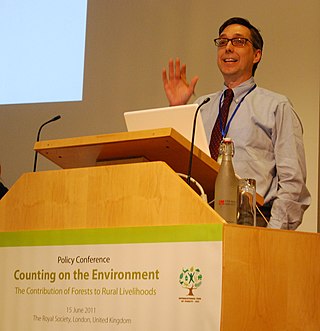
Gerald Shively is an American economist and professor in the Department of Agricultural Economics at Purdue University. He teaches and publishes research articles and books related to contemporary policy-related issues in economic development. His specializations are in poverty, food security and sustainable development.
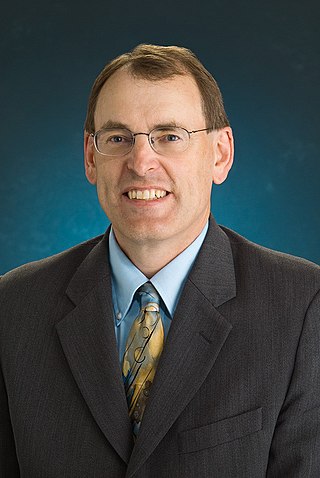
Scott H. Irwin is the Laurence J. Norton Chair of Agricultural Marketing and professor in the department of agricultural and consumer economics at University of Illinois Urbana-Champaign.

Elisabeth Sadoulet is an economist and Professor of Agricultural and Resource Economics at the University of California, Berkeley who has carried out field research in China, India, Latin America, and sub-Saharan Africa. Sadoulet was the editor of the World Bank Economic Review from 2010 to 2013, and is a fellow of several scholarly associations in the fields of agriculture and economics.
William Alan Masters is an American economist, teaching and conducting research on agricultural economics and food policy in the Friedman School of Nutrition at Tufts University, where he also has a secondary appointment in the Department of Economics.
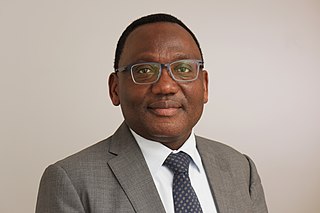
Awudu Abdulai is a Ghanaian agricultural and development economist, and professor at the Institute of Food Economics and Consumption Studies, University of Kiel, Germany. His research and teaching focus on issues related to poverty alleviation, food and nutrition security, consumer behavior, and sustainable agriculture.
Jill Jennifer McCluskey is an American economist. She is a Distinguished Professor of Sustainability and Director of the School of Economic Sciences at Washington State University.
Matin Qaim is the Schlegel Professor of Agricultural Economics and Director at the Center for Development Research (ZEF) of the University of Bonn, Germany. His research focuses on issues of food security and sustainable development.
Uma Lele is an agricultural economist, currently at the Institute of Economic Growth at the University of Delhi, India. She has spent much of her career working with the World Bank and other international organizations.
Johan "Jo" Swinnen is the Director General of the International Food Policy Research Institute (IFPRI), and Managing Director of the Systems Transformation Science Group of CGIAR.










